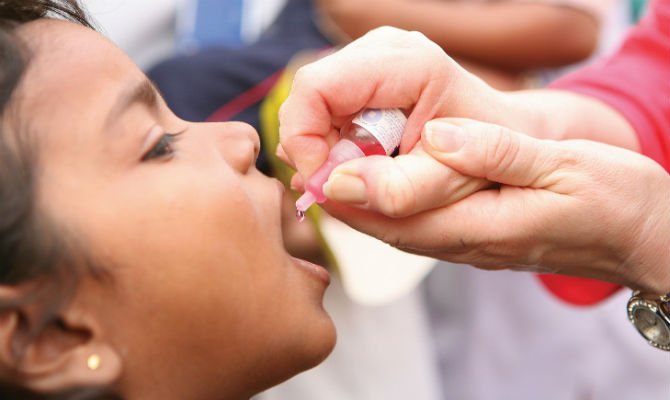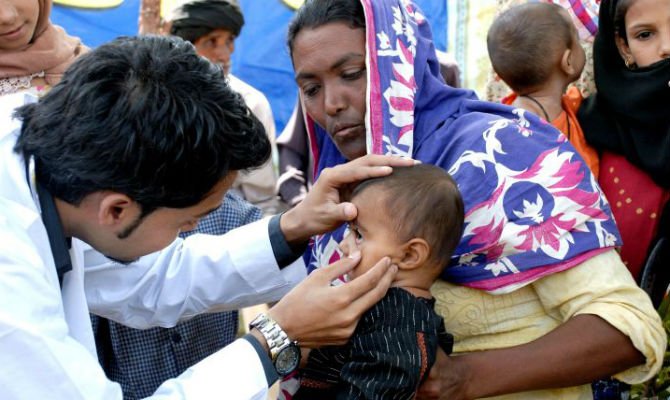WHAT'S THE ISSUE?
According to the World Health Organization, “health is a precondition for and outcome of policies to promote sustainable development.” “Health” in this sense covers a diverse array of issues, from that of mental well-being to non-communicable diseases.
The recently announced Global Goals dedicate Global Goal 3 to Good Health and Well-being to “ensure healthy lives and promote well-being for all at all ages.” As with all development challenges, ensuring good health is inextricably tied to many other factors. For example, without well-established water and sanitation infrastructure, infectious viral diseases will continue to be transmitted between individuals. Similarly, people living in areas experiencing conflict have a higher chance of suffering from mental illness, as well as poor access to emergency care and hospitals.
Within Global Goal 3 there are nine targets, three of which cover decreasing maternal mortality, the eradication of polio and achieving Universal Health Coverage (UHC), three causes Global Poverty Project is campaigning for.
Polio is a viral disease which is predominantly found in children. It has a single prevention: immunization. Today polio transmission is only occurring in two countries, Afghanistan and Pakistan. Significant strides have been made in the bid to end polio, including the recent one year anniversary of Africa not reporting a single case of wild polio.

Poverty, inadequate access to sanitation, and limited infrastructure all contribute to maternal mortality which accounts for a high percentage of deaths of women in developing countries. However, with strategic investment in prenatal nutrition and care, hospital and emergency infrastructure, and strong postnatal support, this can be improved. The Global Goal target is to reach a global maternal mortality ratio of less than 70 deaths per 100,000 live births.
Universal Health Coverage, including access to quality essential health-care, affordable vaccines and medicines, and financial risk protection, is listed as a particularly ambitious target of Global Goal 3.
HOW DID GLOBAL CITIZENS RESPOND?
Global citizens took over 300,000 actions within the Action Journeys, calling on various world leaders to commit to improving access to quality health-care.

Almost 240,000 tweets and emails were sent, petitions signed and calls made asking world leaders to do their part in the fight to halt polio. Inspired by this strong collective voice, governments responded. Prime Minister Xavier Bettel of Luxembourg committed to contribute €500,000 to polio eradication efforts. The pledge is directed to the Global Polio Eradication Initiative, a powerful public-private partnership which aims for a polio-free world by 2018. This investment is set to affect the lives of 1.1 million people.
Malta’s Prime Minister, Joseph Muscat, committed to using his influence as host of the upcoming Commonwealth Heads of Government Meeting (CHOGM) to draw attention to the disease. With leaders of 53 countries expected to attend, representing 2.1 billion people, committing to make the eradication of polio a key priority of the Summit is significant.
President Juan Manuel Santos of Colombia received over 34,000 emails from global citizens concerned about the state of his country’s health. In response, President Santos committed to reduce the nation’s maternal mortality rate in rural areas by 25% by 2018. This commitment is set to affect 2.3 million lives, including the more than 20% of Colombia’s population living in rural areas. President Santos acknowledged the active campaigning of global citizens as a trigger for the commitment.
Prime Minister of Japan, Shinzō Abe, recognized that achieving Universal Health Coverage is integral to the eradication of poverty. Consequently, he has committed to form and lead an international alliance for Universal Health Coverage as part of Global Goal 3: Good Health and Well-being.
WHAT'S THE IMPACT?
When the above commitments are fulfilled 3.4 million people are set to have access to improved health-care. Furthermore, given the high-level discussions still to occur at the Commonwealth Heads of Government Meeting and within the international alliance for Universal Health Coverage led by Japan, the likelihood of millions more receiving the benefits of these commitments is high.

WHAT HAPPENS NEXT?
Global Poverty Project will continue to campaign for access to improved health-care, and support partners working in this area. World Polio Day on 23 October will see events in the United Kingdom and Australia calling for further action in seeing an end to polio.
This piece was contributed by Sophie Goulter, Impact Support Officer at Global Poverty Project.